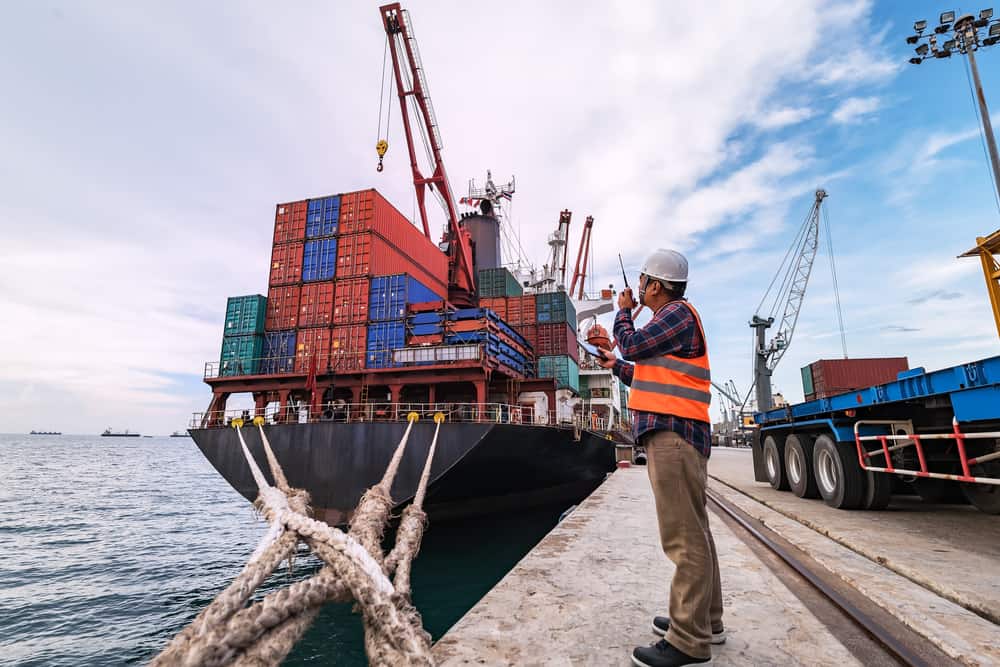Global demand is soaring, leading U.S. ports to break records in their 100-year histories.
All the while, schedule reliability performance has declined. The surge is attributed to strong demand fueled by pandemic-induced consumption. Economic outlook looks strong, but supply chains are catching up as inventories are restocked. Increased consumer demand will continue at least until the end of summer.
“American households are clearly feeling the full effect of additional fiscal stimulus, gains in the job market and the reopening of the economy,” said Matthew Shay, National Retail Federation President and CEO. “Although there have been some recent issues related to vaccines, consumer confidence remains high and an optimistic outlook for the future continues to grow.”
Unprecedented demand has led to a worldwide container shortage, particularly in Asia.
Hapag-Lloyd CEO Rolf Habben Jansen told JOC.com he expects container availability to remain tight for another 6-8 weeks. Terminals are overwhelmed and congestion is causing vessel schedule reliability to plummet. The normal schedule reliability figures have been in the 70-80% range in recent years. According to the Sea-Intelligence report, global schedule reliability dropped down to 35%.
Performance is even lower in Asia-U.S. Transpacific trade. Asia to the U.S. East Coast reliability is 13% and Asia to the U.S. West Coast reliability of 11%. As demand continues to surge, terminals are trying to adjust to the new normal.
March was a record setting month for the following ports:
Los Angeles
The nation’s busiest port had total March volume of 957,599 TEUs. “This is the port’s version of March Madness. If these containers were placed end to end, they would stretch from Los Angeles to New York and then halfway back across the country,” said Port of Los Angeles Executive Director Gene Seroka. “We’ve never seen volume like this in the first half of the calendar year.” The port also announced they are on track to surpass 10 million TEUs for their fiscal year. This will be a record for any port in the Western Hemisphere.
Long Beach
They have broken their cargo records 9 months in a row. March was the busiest moving 840,387 TEUs. This is the third time in the port’s 110-year history that they surpassed the 800,000 TEU mark in a single month. “Although the pandemic is receding, consumers are spending less on travel this year and turning toward online retail in unprecedented numbers to purchase exercise equipment, office furniture and home improvement items,” said Mario Cordero, Executive Director of the Port of Long Beach in their press release.
Savannah
The country’s fourth-busiest port is on pace to reach 5 million TEUs in a fiscal year for the first time. In March, the Georgia Port Authority reported an all-time high of 498,000 TEUs. “Over the past six months, unprecedented volumes have crossed our docks, but Georgia’s logistics community and GPA’s employees have risen to the occasion by working long hours and bringing on additional staff,” said GPA Executive Director Griff Lynch.
Houston
The sixth-largest container port in the U.S. reported a 20% sequential jump in March. This was after a dip in February due to the severe winter storms that left millions without power. The Port of Houston handled 297,397 TEUs in March, their highest monthly total, breaking their previous record from Oct. 2020 by more than 1,000 TEUs. “We are seeing significant increases in cargo,” Executive Director Roger Guenther said. “As container demand surges across our docks, our terminals remain efficient and free of congestion to provide the best service levels to our customers.”
To help reduce vulnerabilities, developing a supply chain relationship with an NVO/Freight Forwarder is key.
As a strategic partner, we can quickly mitigate any issues when they arise. And, as an optimist, I view these disruptions as an opportunity to find new approaches to sourcing. Along with our flexible shipping options, we can help you test new ports of entry. We are also capable of finding space or equipment when there are shortages in the market. For more information, please contact your MTS Logistics representative about our expertise in freight forwarding.




